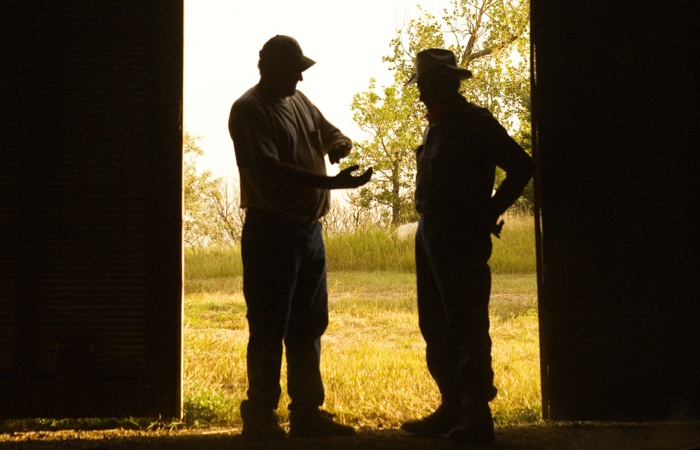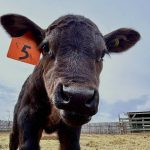Simply put, an executor is a person you trust to carry out your wishes as you have designated them in your will, which could include the care of your children, dependants, assets and farm business after you die.
Robert Graham, a lawyer who specializes in business and farm succession planning with Smith Valeriote Law Firm LLP in Guelph, Ont., describes an executor as someone who can step into your shoes and make decisions for your estate that you would have otherwise continued to make if you were still alive. That’s a significant responsibility for someone when it comes to managing a farm.
The responsibilities of an executor are somewhat dependent on the assets that are owned at death, and Graham explains the role may be as straightforward as gathering information about bank and investment accounts and property; working with a lawyer to complete the estate administration process; paying estate debts and taxes; and distributing the estate based on the terms of a will.
Read Also

How scientists are using DNA and climate data to breed crops of the future
A method for forecasting how crops will perform in different environments so that plant breeders can quickly select the best parents for new, climate-resilient varieties.
“But,” says Graham, “the role can be more complex when it comes to a farm, especially as the complexities of the asset base and the nature of the assets increases.”
Choosing the right person
It can feel natural to assume family will be up for the task of executor, especially within farm families that have an interest in keeping the farm operational or within the family.
“But don’t just assume everyone is fit for the job,” recommends Jim Kibble, owner of Ontario Estate Consulting Solutions Inc. Typically, a spouse is named as an executor when the first spouse passes so the role of managing the estate transitons in a relatively smooth manner.
If both spouses have passed, the executor role falls to someone else and becomes substantially more complicated and time consuming.
“At minimum, an executor is responsible for applying for probate, arranging payment of probate tax (from the estate), making funeral arrangements, and following the exact instructions set out in the will,” explains Kibble.
The ideal executor is someone who is familiar with the testator (person writing the will), the family and the farm operation. Graham says it should be someone as local as possible and a Canadian resident for tax purposes.
In many cases a child, family member or friend makes the ideal candidate, but both Graham and Kibble warn against naming multiple executors. Graham points out that being an executor isn’t an easy job, and the more people involved, the more cumbersome and time consuming it can be.
For example, all executors are required to be present for at least the first appointment to make decisions, including meetings with lawyers, banks and accountants. They must all agree and sign off on every decision in person, and any hard feelings or trust concerns make the process more difficult for everyone.
“If you’re considering asking your children to be your executor, choose the one that is detail-oriented, has common sense, knows how to ask for help and will follow through with the role,” advises Graham.
Kibble reminds farmers that an executor can say no to the role too. “Even if someone is willing to do the job, you never know for certain if they can fulfil the task,” he says, explaining that circumstances like a person’s health, time commitments or even a personal crisis could prevent them from carrying out the role when the need arises.
Kibble’s solution is to name a trust company as executor of last resort to provide certainty that you have a bullet-proof plan if others are unwilling or unable to act. Every major Canadian bank has an affiliated trust company that can serve this role for a predetermined fee. He explains that farmers can easily obtain the fee schedule from any trust company they may want to consider, and there is no cost to the testator to engage a trust company when drafting a will. Trust companies only charge when they begin to act as executor.
If farmers are hesitant to explore adding a trust company as an executor, Kibble assures them they can name individual trusted advisors to come alongside the trust company to counsel as needed on any aspect of the farm. Advisors can include a spouse, children, accountant, agronomist, veterinarian, etc. “The only authority an executor has, including a trust company, is to follow the instructions in a will, and if naming advisors can help that person do their job, why not include them in a will?” says Kibble.
Add an advisor
As farm business structures become more complex and estate values increase, the importance of selecting the right person to step in to manage a farm at a moment’s notice becomes vital, especially if family members or business partners are relying on the business to operate as status quo.
“That’s why a team of trusted advisors is crucial, both during life and after death,” says Graham. “The executor must lean on the team, just as the testator has leaned on the very same team.”
Including an advisory team to support the executor in a will can help maintain the farm business until decisions can be made about farm transfer to beneficiaries, winding down the business to sell, or any other outcome directed within the will. Advisory fees or appointed rates can even be written into the will to ensure compensation.
“A farm can’t miss a beat; there can be serious consequences if it does,” Graham points out.
An advisory team can also be beneficial to support a farm transition. Ideally, says Graham, the farm family would have a succession plan or at least start the process before the owner passes, but that’s not always case.
“Apprising an executor of the succession plan and how it will be implemented is also helpful,” notes Graham. He also reminds farmers that the sooner the next generation becomes knowledgeable about the business structure and begins to participate or take accountability, the easier the transition can be in the event of a death.
And also consider…
Kibble reminds farmers that an executor’s role requires a serious time commitment, an ability to keep accurate time and financial records, and good communications and relationship skills. “It’s not an easy task,” he says, “so choose carefully.”
Above all, Graham says, it’s important to talk to the person(s) you are selecting as executor.
Executors need to be aware of their role, Graham says, and he encourages all his clients to chat about the contents of their will with the executor and anyone else involved
“Choose people you trust and who will follow your wishes,” Graham says. “Now is the time to share your wishes and intents with everyone who has a role, including executors, guardians and powers of attorney.”
– This article was originally published in the April 2024 issue of Country Guide.
















